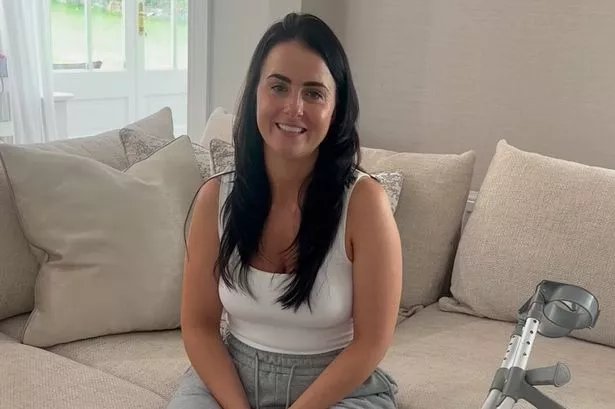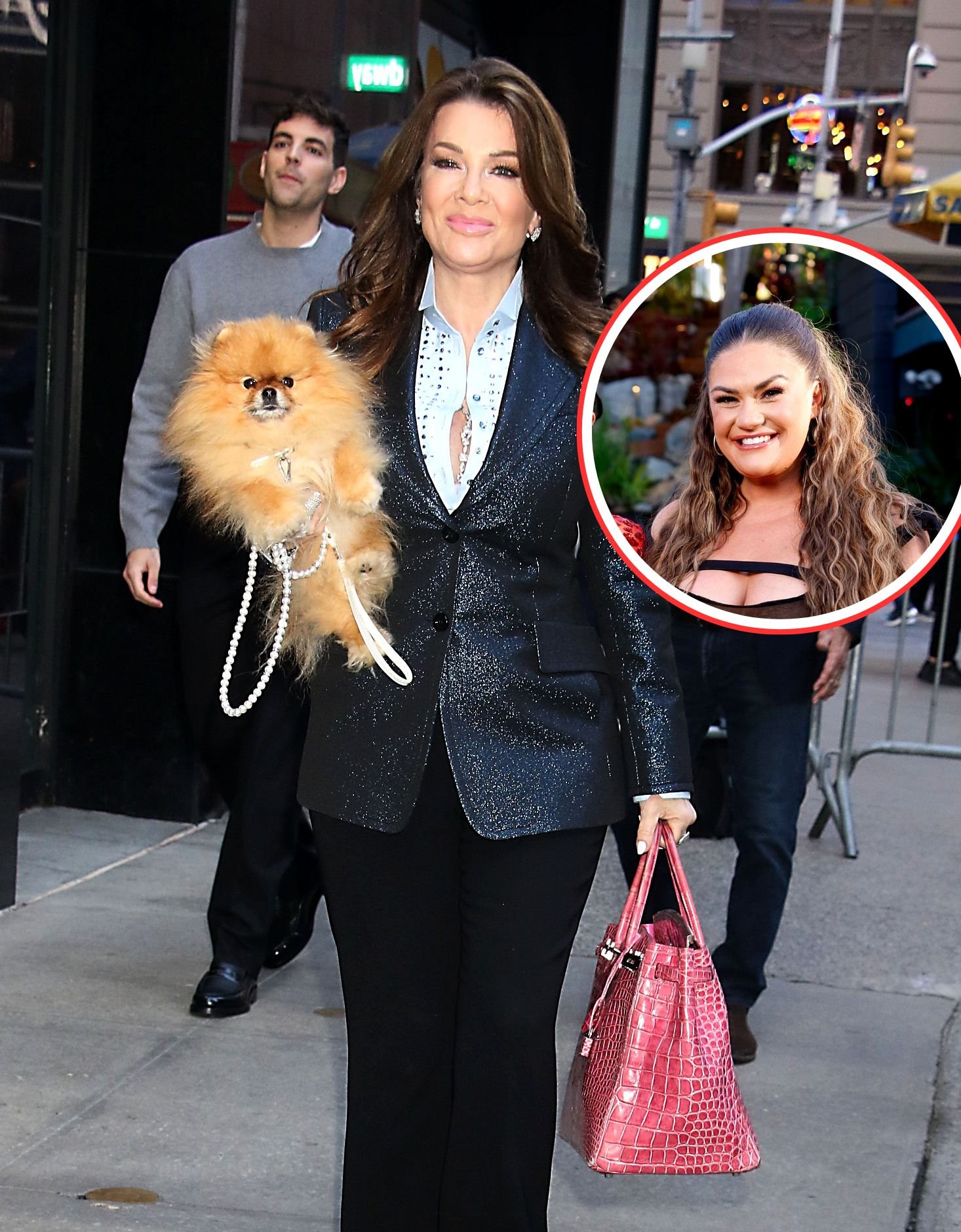Popular country singer Lisa McHugh opened up on her life in the lead up to her diagnosis and shared the reality of her difficult recovery, leaving viewers in awe of her strength
Lisa McHugh left Late Late Show viewers in awe on Friday night after she made a comeback to performing after a harrowing year of ill-health.
During the summer, the country music star revealed that she had been diagnosed with Functional Neurological Disorder, which left her unable to use her legs.
Lisa had to take a break from her hugely successful country music career, and on Friday she joined Patrick Kielty on the Late Late Show last night to discuss her health battle.
“I had never heard of it when I was diagnosed; I had never heard of it at all,” Lisa told him. “But since I have shared my story, the thousands of messages that I have had from people to say that they’re going through something similar and they’ve been sent home and they’ve no help… They don’t know where to turn or what to do and they’re really, really struggling. It’s mind-blowing the amount of people that are so ill.”
She explained that the illness in her case was caused by stress.
“I’m doing what I am doing, and [what] I love to do is touring, as you well know, touring around the country,” said Lisa. “And you’re eating at the wrong times. You’re eating the wrong food. You’re not getting enough sleep. You’re going home then late at night and getting up first thing in the morning with the kids, being a mum again. And then you’re going to do the shop in the local shop. You’re trying to squeeze in everything and wear every hat you can.
“And in that time, I just completely forgot about looking after myself. It was a huge wake-up call.”
She added: “”I don’t want to give anyone the impression that I’ve waved a magic wand and, you know, everything is 100% again, because I’m definitely still on the recovery journey.”
However, she is “getting there” when it comes to recovery and treated the Late Late Show audience to a stunning performance. Viewers were blown away by her singing and inspiring interview.
On Saturday morning, Lisa took to social media to share a heartfelt message after her TV appearance.
“I can’t quite wrap my head around the overwhelming amount of support and lovely messages from last nights @latelaterte show I am genuinely shocked but also incredibly grateful,” she wrote. “If someone had said to me 5 months ago that I’d be on National TV telling my story AND singing in only a few months time, I would have thought they had lost their mind!
“I know I have said it several times but, I really am so grateful to be in the position I am today, feeling so much better and to be able to share awareness of FND and the struggles that so many diagnosed with it deal with daily.
But most importantly, I want to share HOPE with anyone who is feeling alone or like there is no light at the end of the tunnel. I want you to know that you are not alone and you too can recover and that was my main reason for doing the show.”
What is Functional Neurological Disorder (FND)
Functional Neurological Disorder (FND) means that the brain and body have trouble communicating, causing a wide variety of neurological symptoms.
The country music singer has been dealing with facial pain, headaches and losing function in both of her legs.
But many people may not have heard of FND before.
What causes FND?
The Mayo Clinic has explained that the cause of functional neurologic disorder is currently unknown, but symptoms of it can appear suddenly “after a stressful event, or with emotional or physical trauma”.
However, they added that signs could also present due to “suddenly after a stressful event, or with emotional or physical trauma. Other triggers may include changes or disruptions in how the brain functions at the structural, cellular or metabolic level”.
Symptoms of FND
Signs and symptoms of functional neurologic disorder may vary, depending on the type of functional neurological symptoms, and they’re significant enough to cause impairment and warrant medical evaluation. Symptoms can affect body movement and function and the senses.
Signs and symptoms that affect body movement and function may include:
- Weakness or paralysis
- Abnormal movement, such as tremors or difficulty walking
- Loss of balance
- Difficulty swallowing or feeling “a lump in the throat”
- Seizures or episodes of shaking and apparent loss of consciousness (nonepileptic seizures)
- Episodes of unresponsiveness
Signs and symptoms that affect the senses may include:
- Numbness or loss of the touch sensation
- Speech problems, such as the inability to speak or slurred speech
- Vision problems, such as double vision or blindness
- Hearing problems or deafness
- Cognitive difficulties involving memory and concentration
How is FND treated?
There are different ways for FND to be treated, but they depend on the types of symptoms that you are showing. These treatments range from physical or occupational therapy, speech therapy, stress reduction or distraction techniques, cognitive behavioural therapy or other mental health therapies and medication.
You can find out more about FND here.











